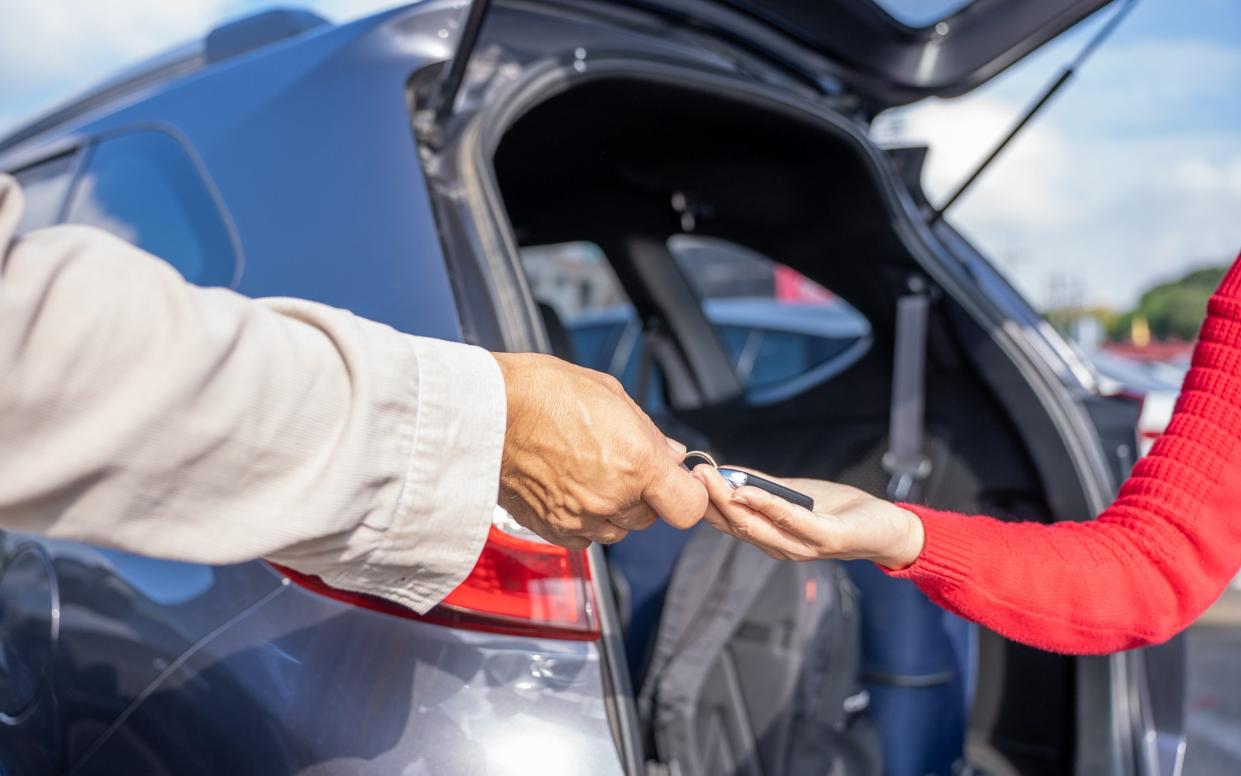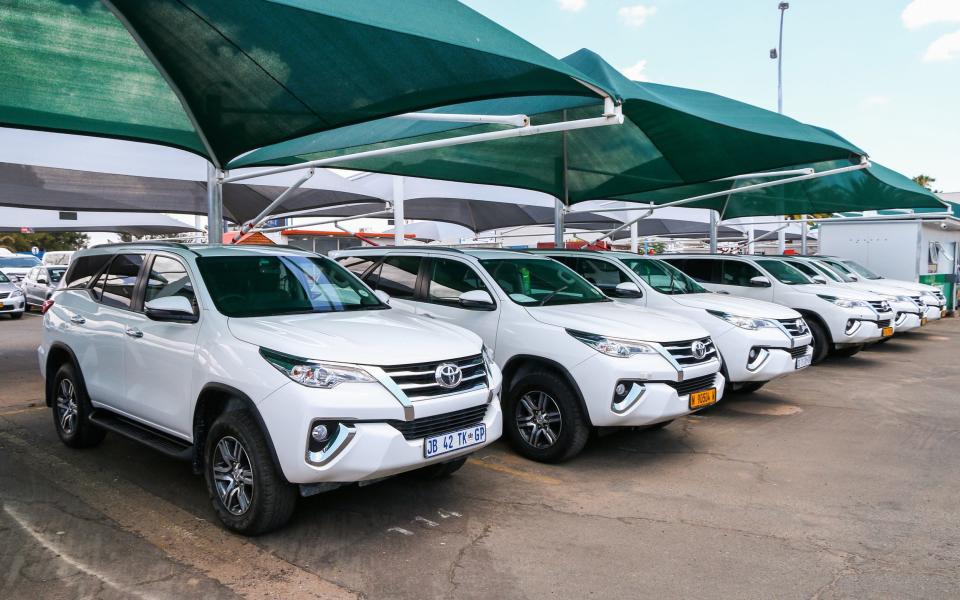Holiday car hire is finally getting cheaper

While air fares, hotel rates and package holiday prices continue their inexorable rise, there is a glimmer of good news for anyone who needs to hire a car this summer. After a surge in rates since the pandemic, the cost of hiring a car from holiday airports is falling dramatically.
New research published by Which? shows that prices have dropped by up to 47 per cent compared with last year. The data (which was supplied by the broker Zest Car Rental) covered the cost of 3,000 one-week rentals at 13 popular holiday destinations including Orlando, Malaga, Faro and Corfu, both this Easter and during the 2024 summer holidays.
At Easter, prices compared with last year (see table below) were well down in 11 of the 13 destinations. The biggest drop was in Funchal, Madeira – down £146 to £266, a 35 per cent fall – and Palma, Mallorca, which saw a £92 (29 per cent) fall to £227. Only Rhodes (up 36 per cent) and Nice, where prices nearly doubled, saw an increase over last year. Which? believes that it may be a lack of local competition that is creating this disparity.

The picture this summer (see table below) is also looking rosy. There were price drops in nine of the same 13 destinations. Rhodes leads the way this time with average rates down from £419 to £259, a 38 per cent drop which was in striking contrast to the rises at Easter. Madeira, Alicante, Corfu and Palma de Mallorca are all more than £100 cheaper than last summer.

Nice was again more expensive than in 2023. A nine per cent rise takes average rates up to £560 per week – much more expensive than in any other destination. Overall, Larnaca in Cyprus saw by far the biggest rise, up 33 per cent to £252 a week.
So why, with those few exceptions, have prices started to drop, even though inflation has remained persistently high? During the pandemic, car hire companies sold off many of their vehicles because of the collapse in demand. Then, in 2022, as travel suddenly recovered, they struggled to replenish the fleets. Prices soared as a result. Research by Telegraph Travel recorded rises of between 59 and 158 per cent since summer 2019. The Which? report did not cover hire costs in the UK but a recent survey by icarhireinsurance.com showed prices here have also risen since the pandemic.
Last year the picture was more mixed, with prices still rising in some destinations, but falling in others. But now it seems that rental car stocks are largely back to normal and greater competition is starting to have an effect. Nevertheless, according to Which?, despite the latest falls, average prices overall are still significantly higher than they were in 2019 – up by 51 per cent at Easter and 53 per cent in the summer.

How to find a bargain car-hire booking
Just because the situation is getting back to normal, doesn’t mean you won’t face high prices – especially at peak times. But there are things you can do to keep costs down. Here are our tips.
1. Compare prices
Rates for the same car can vary hugely depending on how you book. Brokers, which negotiate with local and international suppliers, are usually the best places to start when comparing prices. Zest (zestcarrental.com) and Auto Europe (autoeurope.co.uk) are two of the best. But always make sure you are comparing like with like and have included all the extras (see below).
2. Book early
Typically people book their hire cars only a couple of weeks or so ahead. But if you are planning a peak-time holiday, the normal rule is that the earlier you book, the more likely you are to get a reasonable deal. Start planning now for the summer holidays, for example.
3. Pay to secure the booking
If you pay at least a deposit when you book, you guarantee that you will be able to get the car at the agreed price. Sometimes – if demand is high – unscrupulous suppliers who knew that they could sell cars at higher prices have been known to cancel bookings made without a deposit so that they can re-sell them for a higher profit.
4. Check the contract
Make sure you understand the collision damage waiver (CDW) and theft protection excesses. Most are now at least €1,000 (£850) so even if you are told insurance is included, you will be liable for that amount if you damage the car. So take out additional cover in advance of collecting the car. Most car hire companies sell some sort of policy either to reimburse the excess or reduce it to zero, though independent insurers such as reducemyexcess.co.uk, insurance4carhire.com or icarhireinsurance.com are usually cheaper.
Check your credit card limit is high enough to leave enough deposit to cover the excess. This is because if you don’t buy a policy from the supplier where you pick up the car, it will demand proof that you can cover the required amount. It is vital that the card you offer is in the name of the same person who originally booked the car.
If your flight is delayed by more than one hour after the start time of the rental, phone the rental office at the airport – otherwise your reservation may be cancelled. Many suppliers have a policy of holding cars for only two hours after the agreed collection time, unless they are alerted.
Check that no unwanted extras have been added to the contract you are asked to sign.
Inspect the car to check that every scratch or dent on the bodywork is marked on the contract. Take photographs of all four sides of the car – and also the milometer on the dashboard.
Double-check the fuel policy. The easiest is one which gives you a full tank on collection on condition you return it in the same state. You might be concerned that the petrol station closest to the airport will have higher prices, which is often the case, but this will pale in comparison to what you will be charged if you return the car without a full tank. Keep the receipt from the petrol station where you filled up before returning the car.
If the vehicle is not inspected immediately on return, take photographs to record its condition.

